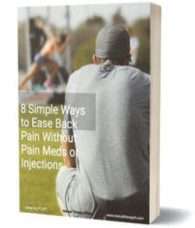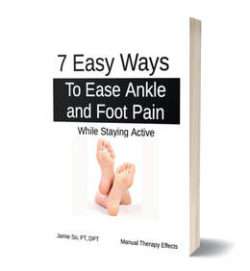We know that for many of our patients running is a passion. The truth is, however, so many of those same patients visit us because of injuries related to their runs. Far from telling them to stop running, our main goal is to prevent debilitating knee/foot/ankle injuries BEFORE they happen, and to keep our patients as active as possible.
Whether you’re an athlete, a casual runner, a mom squeezing a jog in before work, or even just a bi-weekly trail blazer, injuries related to running can happen to you. And the sad thing is, knee, ankle, and foot injuries can often set your training and activity back considerably. We don’t want this happening to you, and that’s why this post looks at the 10 best ways to PREVENT running injuries, thus keeping you on your feet for longer.
1. Leg Strengthening Exercises – Strengthening your leg muscles is key to preventing an injury on your run. Leg muscles ensure that we have the support and strength to stave of the consequences of a fall or a twist. Why not try strengthening your leg muscles on a daily basis? Forward lunges are great way to start, as they target hip, hamstring, quad, and glute muscles.
2. Hydration, Hydration, Hydration! – Drinking enough water is absolutely VITAL in maintaining a pain free, active lifestyle. Runners are particularly in need of proper hydration: when you run, the joints in your legs and back have to deal with an enormous amount of pressure. If these joints aren’t lubricated properly, friction will cause abrasion, thereby leading to pain and discomfort. Make sure you drink at least 8 cups of water on a daily basis, and if you’re running long distances in the heat make sure you add to that number.
3. Flexibility is Key – As with any exercise, being flexible greatly reduces your risk of injury. When it comes to running, things are no different. Flexibility is particularly important for runners, as it means the muscles are well equipped to deal with varying terrain, obstacles, and exertion. Why not try doing yoga or Pilates? These types of exercises strengthen your core and leg muscles, thereby correcting your posture and gait during your run. It is far more difficult to injure a flexible muscle, and should a muscle be injured, a flexible muscle is able to recover much faster.
4. Gradual Mileage Increase – We all want to shoot out the gate at a hundred miles an hour, but in order to prevent injury, the best thing to do is to increase the mileage steadily. Working towards a goal is often an effective way of preventing injury; it gives your body a chance to strengthen and catch up to what is being asked of it. If you start slow and steady, you’ll win the race!
5.Warm Ups and Cool Downs – This is a tip that is overlooked far too often. Lactic acid build-up causes our muscles to get stiff, thus increasing the risk of injury. As little as a 15 minute warm up and cool down can flush out the lactic acid and give you the best possible chance of beating the odds. What do you have to lose? Why not do some stretches, a gentle walk, or even a little yoga before/after your run?
6. Rest Days – We know that you hate hearing this, but resting your legs and knees is an essential part of training and/or participating in any type of fitness regime. If you don’t allow your muscles to rest and recharge, fatigue might expose you to serious injuries which could set you back for a lot longer. Take a day or two off during the week and opt for a different type of activity: Pilates, yoga, or even swimming will do the trick.
7. Essential Footwear – Get fitted and invest in supportive, comfortable running shoes at a running specialty store. If your soles are worn out and you’re no longer getting the support you need, it’s time to grab a new pair. Remember to introduce the new footwear gradually, thereby giving your body time to adjust. All shoes are different, and it’s important to find a pair that’s right for you.
8. Running Form – Runners need to be aware of their running form. In so far as balance and posture are concerned, running is particularly responsible for twist/fall injuries. Your running form needs to be as functional and safe as possible, and one way to correct muscle overcompensation, or weight distribution imbalances, is to practice rectifying activities such as Pilates or yoga. Your legs, knees, ankles, and feet will definitely thank you!
9.Reduce Downhill Running Impact – Running downhill is particularly hard on your knees, and while many of you might like the challenge, it is a good idea to reduce the amount of downhill running you’re doing. Because running already places far more pressure on your joints than walking, taking care of your knees is a big priority.
10. Vary Running Terrains and Surfaces – The type of terrain you choose to run on plays a big role in the way your joints react and function. All too often, running related injuries are as a result of unforgiving, hard terrain such as asphalt and/or cement. Exposure to these types of terrain over long distances can result in serious injuries which could put your running lifestyle on hold. Try varying your terrain by running on grass and sand, for example.
So, there you have it: 10 ways to prevent debilitating injuries as a result of running. That having been said, if you are currently experiencing pain in your legs, knees, or feet, we invite you chat to one of our friendly, professional physical therapists, today. Not only will a PT find the root cause of the problem, but he/she will end the pain and help you maintain a pain free, active lifestyle moving forward. Don’t wait for the pain to disappear – act now and be back on the road in no time. We know how important running is to you, and we’re here to help. Click here to reach out to us.



